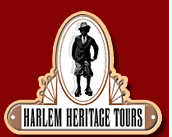from 2/14/08 from ny1.com
NY1 has been commemorating NY1's coverage of Black History month this week with a number of reports on New Yorkers who are continuing the legacy of Dr. Martin Luther King, Jr. Now, Queens reporter Ruschell Boone introduces us to two academics who in the 1960s risked their lives to fight racism.
Moshe Shur was 21 when he met Dr. Martin Luther King, Jr. It was the summer of 1965 and Shur and Dean Savage were among hundreds of college students from the north who went south to register African Americans to vote.
“We thought we could change the world,” says Shur.
And the world was changing. The Voting Rights Act was finally moving through Congress.
Hoping to keep the pressure on, Dr. King and the Southern Christian Leadership Conference, created the SCOPE Project – patterned after the Freedom Summer project from 1964.
Shur and Savage, then students at Columbia University, worked in South Carolina to overcome racial discrimination and intimidation that had prevented African-Americans from voting for generations.
“Every day we would go to a different church, a different organization, and we would try to persuade as many people as possible to go down to the courthouse and register to vote,” says Savage.
Savage is now a professor at Queens College and Shur is a rabbi and the director of the Queens College Hillel.
At the time, they say they didn't realize the danger they faced, even though a Queens College volunteer named Andrew Goodman and two others were killed by the Ku Klux Klan in Mississippi the year before. They were so naive, they say, they foolishly attended a KKK meeting to see what the Klan was about.
“We were just like nothing like this can happen to us,” says Shur. “The next day, houses were shot up. I remember there was a churched burned down in one of the adjacent counties.”
At one point, they and other volunteers were arrested for protesting a slowdown in the voter registration process.
After that Savage and Shur said the volunteers became even more committed to Dr. King's message – one that has stayed with them to this day. Looking at the recent primaries in South Carolina the men say they were proud to see the high number of blacks who turned out to vote
”I said, ‘hmm, maybe I had something to do with that?’ But not me, it was Dr. King's vision. I think Dr. King's vision is still there,” says Shur.

















0 Comments:
Post a Comment